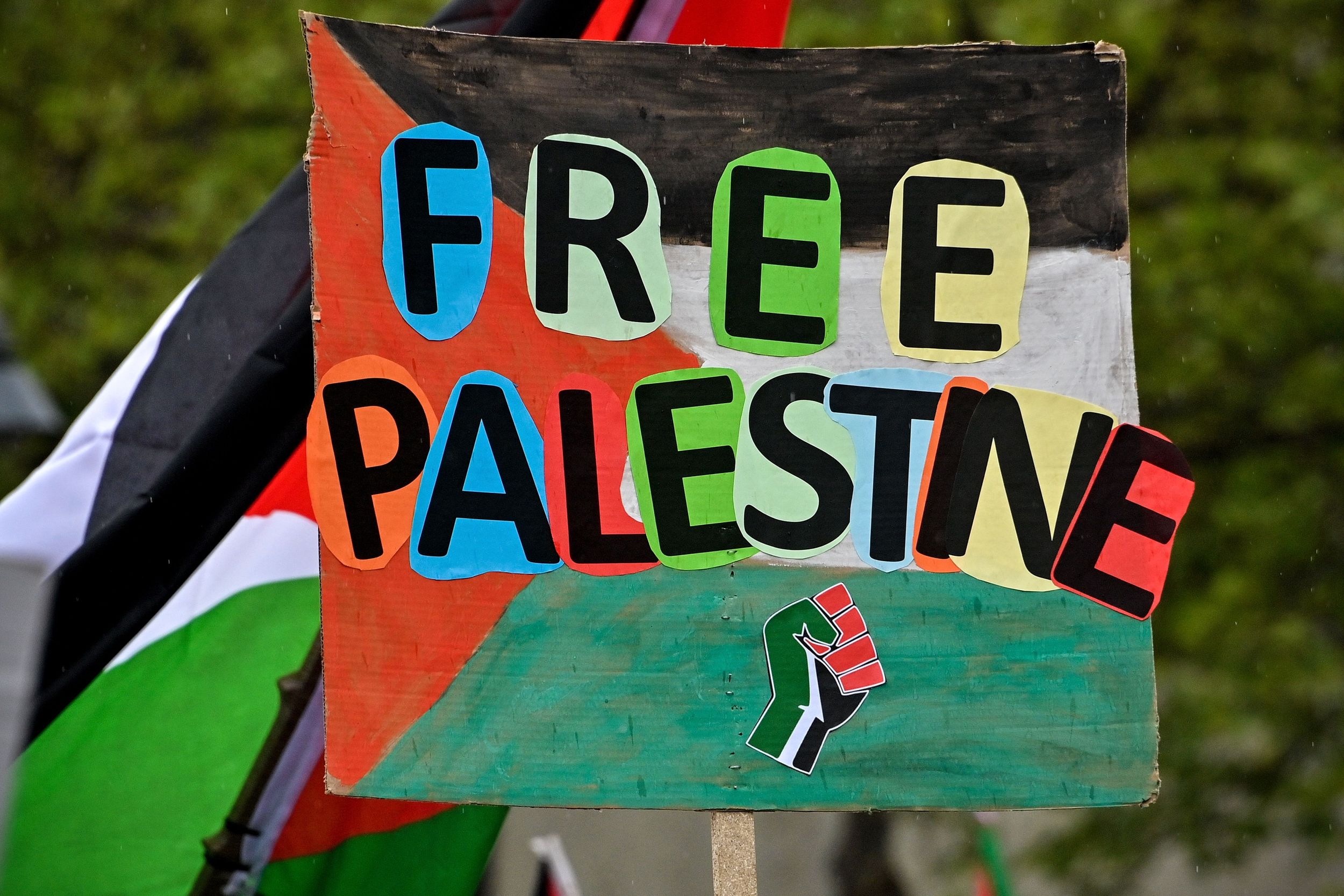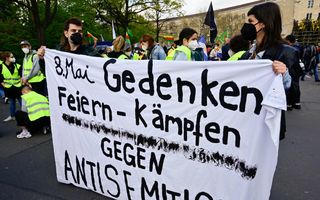Pro-Palestinian demonstrations turn out to be a stage for anti-Semitism
It is a fixed pattern: when the flame flies in Israel and Gaza, large groups of demonstrators pass through the European cities. The dividing line between criticism of Israel and anti-Semitism appears thin again.

As with the previous larger flare-up of violence in Israel and Gaza, in 2014, texts like “Death to the Jews” resounded through the streets of Europe’s major cities. In several German towns, Israeli flags went up in flames, and protestors attacked synagogues. A London woman filmed cars covered with Palestinian flags driving through the British capital while the occupants were using megaphones to call for the rape of Jewish girls, among other things.
These images are not necessarily representative of all demonstrations. Still, it is a fact that pro-Palestinian demonstrations were again accompanied by anti-Semitic expressions. The French sociologist Michel Wieviorka, of Jewish origin, noted in 2005 in his book “La tentation antisémite” (The anti-semitic temptation) that identification with the Palestinian cause often means that everything is sucked into the same image of evil. All distinctions between the Israeli government, the State of Israel, Zionism and the Jews in the Diaspora fall away.
The fact is that this is not usual in other demonstrations. For example, owners of Chinese restaurants in The Hague have nothing to fear from demonstrators at the Chinese embassy about the fate of the Uighurs. Nor does criticism of Syrian President Bashar al-Assad mean that Syrians in the Netherlands are under fire. But anger at the actions of the Israeli authorities easily leads to anger against the Jewish people as a whole - at least among some of the demonstrators.
Latent anti-Semitism
Wieviorka argues that, at least among the French Muslim population, resentment about their own position comes with it. Whereas they are regarded as outsiders in society, French Jews are an integral part of it. Classical French anti-Semitism came from a nationalistic background, where ‘foreign’ Jews were seen as a threat. But now, the picture is somewhat reversed. Because the Jews are highly integrated, they are envied and hated by other entrants.

According to some critics, the susceptibility to anti-Semitism does not only affect (Islamic) minority groups. In an opinion piece in the French newspaper Le Figaro, Journalist Benjamin Sire broached an old point by asking why left-wing French people primarily take to the streets in solidarity with Palestinian victims of Israeli violence. After all, where are they when it comes to victims of Syrian violence or when it strikes the Uighurs?
“The images of slain children in Gaza (…) are unbearable in the eyes of any normal person,” he writes. “But what about those of the dozens of girls murdered by the madness of the Taliban in Afghanistan?” The lack of mass demonstrations in many other cases is an indication to Sire of his contention that it is not (only) human suffering but “latent anti-Semitism” that drives protesters into the streets.
Defining anti-Semitism
In the background of such discussions, there is always the question of how to define anti-Semitism. Traditionally, there is a distinction between criticism of Israel’s actions, anti-Zionism and anti-Semitism. Historically, anti-Zionism is opposition to the pursuit of a Jewish homeland or state, but not necessarily to the Jewish people. It also exists among certain ultra-Orthodox Jewish groups, who see the current State of Israel too much as a human construct. In practice, anti-Zionism and anti-Semitism often lie close together.
Criticism of the State of Israel is, of course, not the same as anti-Zionism or anti-Semitism. There are plenty of Jews who disagree with the actions of their government and express this. The line is crossed when criticism of political action and policy turns into the criticism of Jews in general.
This article was published earlier in Dutch daily Reformatorisch Dagblad on May 21th, 2021.


